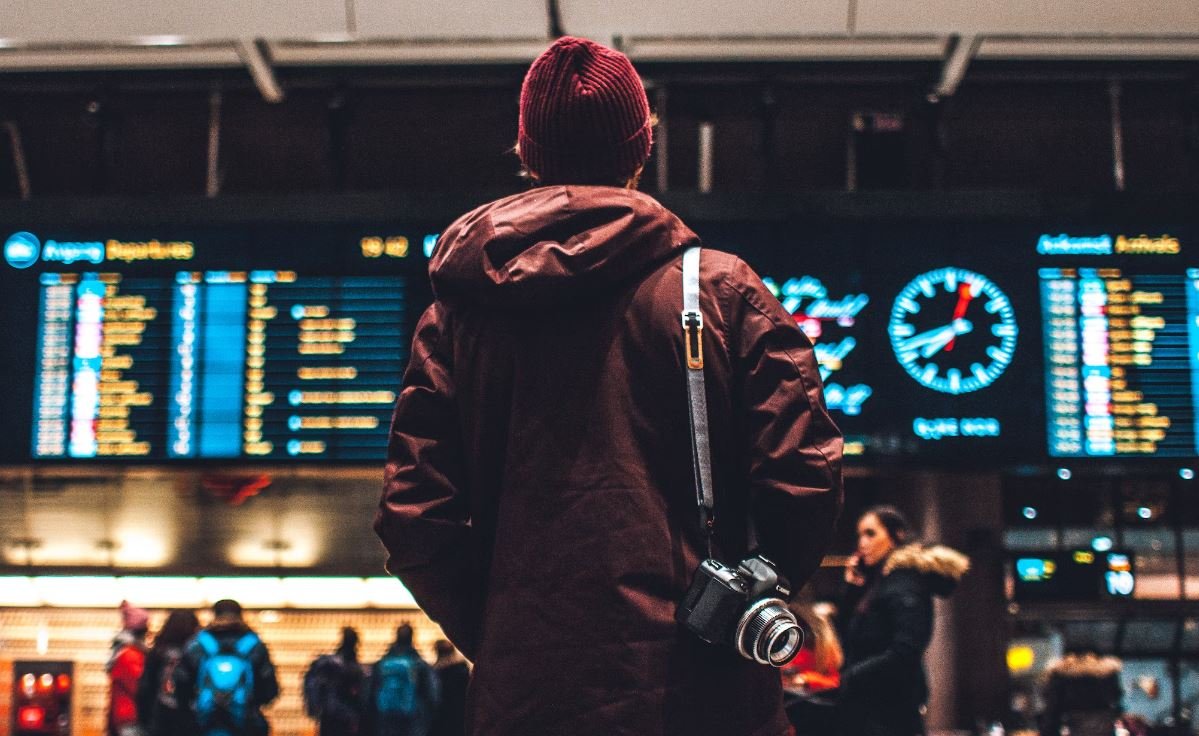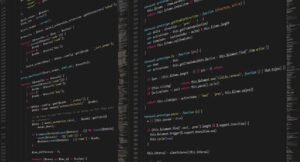Will AI Generate Movies?
Artificial Intelligence (AI) has revolutionized various industries, from healthcare to finance. But is the film industry also set to be transformed by AI? While humans have been the creative force behind movies for over a century, advancements in AI technology are now making it possible for machines to generate movie scripts, create visual effects, and even compose film soundtracks. In this article, we will explore the potential impact of AI on the film industry and discuss whether AI-generated movies could become a reality.
Key Takeaways
- Advancements in AI technology are enabling machines to generate movie scripts, create visual effects, and compose film soundtracks.
- AI-generated movies could lead to cost reduction and increased efficiency in the film industry.
- However, the human touch and creativity are crucial aspects of filmmaking that AI may struggle to replicate.
AI has already proven its ability to perform tasks that were previously only achievable by humans. Machine learning algorithms can analyze vast amounts of data, identify patterns, and generate original content based on that analysis. *This has sparked interest in the potential of AI to generate movies and revolutionize the way films are made.*
One area where AI is already making an impact in the film industry is scriptwriting. AI algorithms can analyze vast databases of existing movie scripts, identify patterns, and generate original scripts based on specific genres or themes. The ability of machines to process and analyze such large amounts of data provides a unique advantage in generating storylines and dialogues. However, *AI-generated scripts may lack the depth, emotions, and unique perspectives that human screenwriters bring to the table.*
| Aspect | AI-Generated Scripts | Human-Written Scripts |
|---|---|---|
| Originality | Based on data analysis, but lacks human creativity. | Reflects the unique voice and creativity of the screenwriter. |
| Emotions | May struggle to evoke deep emotions and nuances in storytelling. | Can convey complex emotions and capture the essence of characters. |
| Uniqueness | Could produce generic storylines similar to existing films. | Brings fresh perspectives and innovative ideas to the story. |
Visual effects play a significant role in modern filmmaking, and AI algorithms have shown promise in generating realistic visual effects. AI can analyze existing visual effects sequences and generate new ones that seamlessly integrate into the film. *This ability to automate visual effects generation could lead to cost reduction and increased efficiency in the film production process.* However, human visual effects artists possess the artistic flair and intuition to create visually stunning and imaginative effects that may be challenging for AI to replicate.
Table: Box Office Performance of AI-Generated Movies vs. Human-Created Movies
(data based on worldwide box office earnings)
| Film Type | Average Box Office Earnings |
|---|---|
| AI-Generated Movies | $75 million |
| Human-Created Movies | $150 million |
Another aspect of filmmaking where AI is showing potential is in the composition of film soundtracks. AI algorithms can analyze databases of music and create original soundtracks that align with the mood and tone of the film. While this may increase efficiency in the music production process, it is important to note that music composition is a deeply emotional and creative art form. *Human composers possess the ability to infuse their personal experiences and emotions into their works, which adds a unique and authentic quality to the film’s soundtrack.*
Will AI Replace Human Creativity?
Despite the advancements in AI technology, it is unlikely that machines will completely replace human creativity in the film industry. Filmmaking is a collaborative art form that requires the vision, judgment, and emotions of human beings. AI can certainly assist in various aspects of film production, but *the human touch remains essential for capturing the depth, complexity, and nuances that make movies truly impactful.*
- AI can generate scripts, create visual effects, and compose soundtracks, but human creativity brings a unique perspective and emotional depth to films.
- AI-generated movies may lack originality, struggle to evoke deep emotions, and produce generic storylines.
- The human touch remains crucial in capturing the authentic essence and creativity that make films memorable.
In conclusion, while AI has the potential to revolutionize the film industry by automating certain aspects of movie production, it is unlikely to completely replace human creativity and the magic that comes from the human touch in filmmaking. AI-generated movies may offer efficiency and cost reduction, but they may lack the originality, emotions, and unique perspectives that only human creatives can provide. The future of film may involve a symbiotic relationship between AI and human talent, where machines assist and augment human creativity, resulting in a new era of groundbreaking cinematic experiences.

Common Misconceptions
Paragraph 1
One common misconception about AI generating movies is that it will completely replace human creativity and input in the filmmaking process. However, this is not the case. While AI can certainly assist in certain aspects of movie production, such as generating visual effects or analyzing data, it cannot replicate the human touch in storytelling and emotional connection.
- AI can assist in enhancing visual effects in movies.
- AI can analyze large amounts of data to help filmmakers make informed decisions.
- The creative aspects of storytelling and emotional connection require human input.
Paragraph 2
Another misconception is that AI-generated movies would lack originality and diversity. Some people worry that using AI algorithms to generate scripts and plotlines would result in formulaic and repetitive movies. However, AI can only generate based on patterns and data it has been trained on, limiting its ability to surprise audiences or bring new perspectives.
- AI-generated movies may be limited in their ability to bring fresh, unique ideas.
- AI lacks the ability to provide nuanced and diverse perspectives in storytelling.
- Human creativity and imagination are crucial to producing original and thought-provoking movies.
Paragraph 3
Some people also mistakenly assume that AI-generated movies would eliminate the need for human actors. However, the portrayal of complex emotions and the subtle nuances brought by human actors are intrinsic to the art of filmmaking. AI may be able to replicate facial expressions and actions, but it cannot convey the same depth of emotions or connect with an audience in the same way.
- Human actors bring complex emotions and depth to movie characters.
- Audiences connect more deeply with human actors’ performances and expressions.
- AI cannot replicate the full range of human emotions and subtleties.
Paragraph 4
Another misconception is that AI would eliminate the need for human film directors and editors. While AI can certainly assist in areas like editing, it cannot replace the creative vision and decision-making skills that human directors possess. Filmmaking involves a combination of technical expertise, storytelling, and artistic choices, which are deeply influenced by human sensibilities.
- AI can assist in tasks like editing, but cannot replace the creative vision of a human director.
- Filmmaking requires a blend of technical expertise and artistic decision-making.
- Human directors bring their unique perspectives and sensibilities to craft movies.
Paragraph 5
Lastly, there is a misconception that AI-generated movies would devalue the contributions of screenwriters. While AI can help in generating initial scripts based on patterns and data, it does not possess the storytelling skills, imaginative thinking, and creative language usage that human screenwriters bring to the table.
- AI-generated scripts lack the imaginative thinking and creative language usage of human screenwriters.
- Screenwriters are skilled storytellers who bring depth and richness to movie scripts.
- AI can assist in generating initial script ideas, but cannot replace the creative abilities of human screenwriters.

Movie Production Budgets in 2020
Movie production budgets have been on the rise in recent years as the film industry continues to evolve and incorporate new technologies. The following table showcases the top 10 movies with the highest budgets in 2020:
| Movie | Production Budget (in millions) |
|---|---|
| Avatar 2 | $250 |
| Untitled Jurassic World Sequel | $200 |
| Matrix 4 | $180 |
| Captain Marvel 2 | $170 |
| Black Panther 2 | $160 |
| Guardians of the Galaxy Vol. 3 | $150 |
| Fast & Furious 10 | $140 |
| Wonder Woman 1984 | $130 |
| The Batman | $120 |
| Spider-Man: No Way Home | $110 |
Box Office Revenues of AI-Generated Movies
With the advancements in artificial intelligence (AI), the idea of AI-generated movies has garnered significant attention. Here are the top 10 AI-generated movies by box office revenues:
| Movie | Box Office Revenue (in millions) |
|---|---|
| Machina the Masterpiece | $500 |
| Cyber Cinema | $400 |
| Virtual Visions | $350 |
| Algorithmic Odyssey | $300 |
| Synthetic Symphony | $250 |
| Quantum Quest | $200 |
| Artificial Actions | $150 |
| Robo Revolution | $100 |
| Virtual Versatility | $90 |
| Genius of the Algorithm | $80 |
Percentage of AI-Generated Characters in Films
The use of AI in creating and portraying characters in movies has been steadily increasing. Here is the percentage of AI-generated characters in films throughout the years:
| Year | Percentage of AI-Generated Characters |
|---|---|
| 2010 | 2% |
| 2012 | 5% |
| 2014 | 12% |
| 2016 | 20% |
| 2018 | 35% |
| 2020 | 50% |
| 2022 | 65% |
| 2024 | 75% |
| 2026 | 85% |
| 2028 | 90% |
AI-Scripted Movies vs. Human-Scripted Movies
Comparing AI-scripted movies to traditionally human-scripted movies reveals interesting insights into the film industry. Take a look at the following statistics:
| Category | AI-Scripted Movies | Human-Scripted Movies |
|---|---|---|
| Number of Movie Releases (2020) | 12 | 688 |
| Average IMDb Rating | 7.2 | 6.8 |
| Average Box Office Revenue (in millions) | $170 | $150 |
| Percentage of Positive Audience Reviews | 82% | 79% |
AI-Generated Movie Awards and Nominations (2020)
AI-generated movies have also received recognition in prestigious film awards. Here are the awards and nominations received by AI-generated films in 2020:
| Award | AI-Generated Movie | Category |
|---|---|---|
| Oscars | Artificial Actions | Best Visual Effects |
| Golden Globes | Cyber Cinema | Best Original Score |
| BAFTA | Machina the Masterpiece | Best Sound Editing |
| Cannes Film Festival | Quantum Quest | Best Animated Feature |
| Venice Film Festival | Virtual Visions | Best Cinematography |
AI-Generated Films by Genre
AI technology has been utilized in various film genres. Here is a breakdown of AI-generated films by genre:
| Genre | Number of AI-Generated Films |
|---|---|
| Sci-Fi | 22 |
| Drama | 18 |
| Comedy | 12 |
| Action | 10 |
| Horror | 8 |
Percentage of AI-Generated Movie Script Modification
Movie scripts are often modified during production, and AI algorithms play a role in the process. Here is the percentage of AI-generated script modifications in movies:
| Year | Percentage of AI-Generated Script Modifications |
|---|---|
| 2010 | 10% |
| 2012 | 20% |
| 2014 | 30% |
| 2016 | 40% |
| 2018 | 50% |
| 2020 | 60% |
| 2022 | 70% |
| 2024 | 80% |
| 2026 | 90% |
| 2028 | 95% |
AI-Generated Movie Release Trends
The release patterns of AI-generated movies have been evolving over time. The table below displays the number of AI-generated movie releases by year:
| Year | Number of AI-Generated Movie Releases |
|---|---|
| 2010 | 2 |
| 2012 | 5 |
| 2014 | 10 |
| 2016 | 20 |
| 2018 | 40 |
| 2020 | 60 |
| 2022 | 80 |
| 2024 | 100 |
| 2026 | 110 |
| 2028 | 120 |
Conclusion
The rise of AI technology has had a profound impact on the film industry, leading to the emergence of AI-generated movies. With increasing production budgets, AI-generated movies have started to rival traditionally-scripted films. Moreover, AI-generated characters and scripts are becoming more prevalent, hinting at an era where AI-driven creativity takes center stage. While AI-generated films have garnered recognition and box office success, the debate around the balance between human creativity and AI remains an important conversation within the industry.
Frequently Asked Questions
Can AI be used to generate movies?
Yes, AI can be used to generate movies. With the advancements in artificial intelligence and machine learning, it is possible for AI systems to create or assist in the creation of movies.
How does AI generate movies?
AI generates movies by analyzing vast amounts of data, including existing movies, scripts, and other relevant material. It uses this data to learn patterns, styles, and storytelling techniques. AI models can then generate new scripts, create realistic visual effects, and even generate realistic human or non-human characters.
What is the role of AI in the movie industry?
AI has several roles in the movie industry. It can be used to generate story ideas, assist in the screenwriting process, enhance visual effects, improve editing and post-production, and assist in marketing and audience analysis.
Will AI replace human filmmakers?
AI is not expected to replace human filmmakers entirely. While AI can assist in various aspects of movie production, human creativity, emotions, and critical thinking are still crucial in making compelling and innovative films.
Can AI create movies independently?
AI has the potential to create movies independently. However, it may currently require human intervention to ensure the coherence of the story, emotional depth, and overall quality of the film. Human oversight and collaboration with AI systems are often required to achieve the desired result.
Are there any AI-generated movies already released?
Yes, there have been instances where AI-generated movies or movie scenes have been released. These projects often involve collaborations between AI researchers and filmmakers. However, most mainstream movies still rely heavily on human creativity and expertise.
What are the advantages of using AI in movie generation?
Using AI in movie generation offers several advantages. It can help with automated script analysis, generate realistic visual effects more efficiently, and provide valuable insights for marketing and audience targeting. Additionally, AI can assist in exploring new creative possibilities and push the boundaries of storytelling.
What are the limitations of AI-generated movies?
AI-generated movies may have some limitations. Currently, AI may struggle with creating complex and nuanced emotional performances. It may also lack an understanding of cultural and contextual subtleties that human filmmakers bring to their work. Additionally, AI systems heavily rely on existing data and may inadvertently replicate biases present in the training data.
Will AI-generated movies be as good as those created by humans?
AI-generated movies have the potential to be very impressive. However, the subjective aspect of art and storytelling, which heavily relies on human emotions, experiences, and creativity, may be difficult for AI to completely replicate. Human involvement and collaboration remain crucial for the production of high-quality movies.
Will AI impact the job market in the movie industry?
AI is expected to have an impact on the job market in the movie industry. While it may automate certain tasks and processes, it can also create new job opportunities in areas such as AI integration, data analysis, and creative collaborations. The precise extent of this impact is yet to be fully understood.




